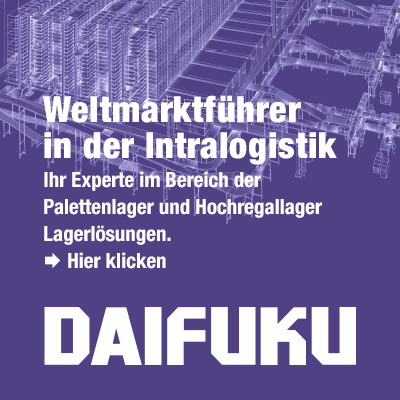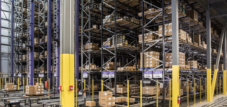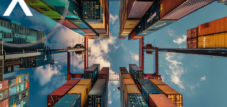Impact on the European economy and logistics: Bulgaria and Romania joining the Schengen area on January 1, 2025
Xpert pre-release
Language selection 📢
Published on: January 6, 2025 / Update from: January 6, 2025 - Author: Konrad Wolfenstein
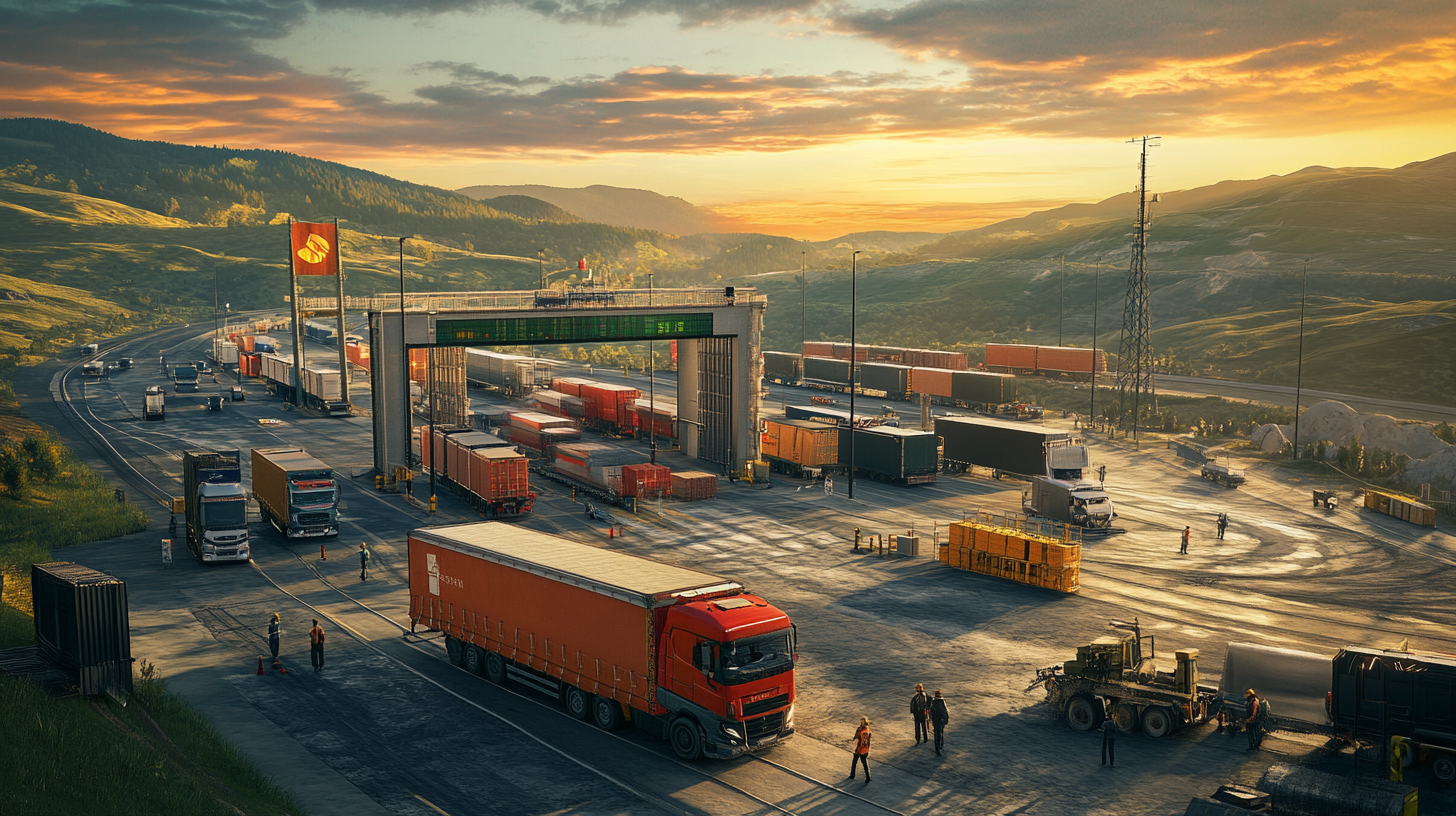
Impact on the European economy and logistics: Bulgaria and Romania joining the Schengen area on January 1, 2025 - Creative image: Xpert.Digital
Schengen 2025: How Bulgaria and Romania are reconnecting Europe's economy
New opportunities for Europe: Schengen accession is driving Bulgaria and Romania's rise
The expansion of the Schengen area to include Bulgaria and Romania on January 1, 2025 marks a significant step in the history of European integration. “The accession of these two southeastern European countries is more than a symbolic act,” said a spokesman for the European Commission. In recent years, Bulgaria's and Romania's economies have made significant progress despite different starting points. Both countries are now not only important trading partners, but also increasingly attractive locations for investments. Schengen accession gives this development path additional dynamism and at the same time puts the logistics and intralogistics sector at the center of attention.
Since its introduction, the Schengen area has ensured a far-reaching reduction in border controls between the participating states. It now includes almost all EU member states as well as some associated states. The free movement of people, goods and services is ensured through harmonized regulations and coordinated border protection measures at the external borders. Although the EU's internal market idea already envisaged smooth movement of goods and capital even without Schengen, the abolition of border controls at the internal borders has significantly deepened this development and led to further integration of the European economies.
With the accession of Bulgaria and Romania this idea will be further strengthened. Numerous experts see this as “an important milestone for deepening European integration”. This text highlights the potential economic and logistical impacts, addresses opportunities and risks and explains what challenges the transport and logistics industry in particular will have to overcome in the near future.
1. Deeper European integration and the role of the Schengen area
The fundamental principles of the European Union are based on the idea of a common internal market in which people, goods, services and capital can circulate without unnecessary restrictions. Schengen complements this internal market by abolishing barriers at internal borders and concretely implementing freedom of movement. At the same time, this system requires the expansion and coordination of controls at the common external borders in order to ensure security and order.
Since the Schengen Agreement was first signed, this border regime has continued to evolve. The integration of Bulgaria and Romania has been a declared goal since they joined the EU, but there have been repeated debates in the past about the right time. “The inclusion of these two countries is a logical consequence, as they already meet essential criteria and have made great progress in many areas, especially border security,” emphasizes an MEP who was involved in the negotiations.
Observers assume that official accession to the Schengen area will send a clear political signal that underlines Europe's unity even in turbulent times. Crises such as the high number of people seeking protection in the years from 2015, the terrorist threat and most recently the COVID-19 pandemic have shown how fragile the structure of the Schengen area can be if reintroducing border controls becomes an option. Nevertheless, there is a broad consensus that enlargement, combined with precise security precautions, will contribute to long-term stability.
2. Economic Opportunities: Trade, Investment and Growth
With regard to the economy, Schengen expansion promises significant opportunities. On the one hand, border barriers will be reduced, which should noticeably accelerate the cross-border flow of goods. The export and import sectors particularly benefit from this. With the elimination of time-consuming border controls, delivery times become shorter, logistics chains can be planned more efficiently and just-in-time principles become even more important. For companies, this means increased planning security, which can also reduce warehousing and administration costs.
“Short delivery times are a crucial competitive factor in a globalized market,” explains a leading logistics expert. If border crossings within Europe function more smoothly and, for example, there are fewer traffic jams at the crossings, this increases the attractiveness of the entire economic area. Trade volumes will typically increase as internal border barriers reduce. This affects both the goods and services sectors, as service providers can operate more easily across borders without having to fear bureaucratic hurdles.
In addition, many analysts predict that foreign direct investment in Bulgaria and Romania will increase as a result of Schengen accession. “Locations that are well connected in terms of transport and are part of an open economic area literally attract companies,” is a statement often heard in business circles. For Bulgaria and Romania, the potential growth in direct investment means not only more capital inflows, but also the transfer of know-how and technology. This process can contribute to a sustainable increase in gross domestic product and make the entire region more competitive.
Another facet is the tourism sector. Thanks to freedom of travel in the Schengen area, travelers from other EU countries and associated states will be able to move around Bulgaria and Romania even more easily in the future without going through border controls. This has direct effects on the hotel industry, restaurants and leisure providers on site. “Open borders are a successful model for European tourism,” is what industry circles say again and again. In this sense, both Bulgaria and Romania have invested heavily in expanding their tourism infrastructure in recent years - be it on the Black Sea coast or in the large cities that have cultural highlights to offer.
3. Impact on logistics: Accelerated transport routes and new corridors
The changes in the logistics industry are particularly clear. Since the 2000s, Bulgaria and Romania have established themselves as strategically important transport and transshipment points within Europe. Bulgaria forms an important link between southern Europe, Turkey and the Middle East, while Romania, thanks to its geographical location, shapes both the Danube region and the Black Sea region. Common transport corridors, for example along the Danube, make a significant contribution to connecting Europe more closely.
With the abolition of border controls at the internal borders, the time required for the transport of goods decreases considerably. “Every hour that trucks save at the border pays off directly in lower logistics costs,” emphasizes a representative of a large freight forwarding company. In fact, in the past there have been complaints about waiting times lasting hours or even days at various border stations. If these holding times are now significantly shortened, the delivery frequency can, in the best case, also be increased. This is particularly interesting for just-in-time concepts, which require a seamless and timely delivery of goods into production and distribution processes.
Another effect is better planning. When companies no longer have to worry about unforeseen border traffic jams disrupting their supply chains, they can operate more long-term and with fewer time buffer calculations. This in turn relieves the burden on storage. Many companies therefore assume that they can reduce their inventory and thereby save costs. At the same time, storage space is being better utilized, which increases the need for complex distribution and logistics concepts.
4. Intralogistics and optimization of material flows
Intralogistics, i.e. those processes that take place within a company or an operational unit, are becoming increasingly important in this context. Intralogistics deals with the organization, control and optimization of internal material and goods flows. When external delivery processes become more stable and faster, new opportunities arise for production companies to adapt their internal logistics. “Companies can increasingly rely on lean manufacturing concepts through reliable and faster deliveries,” explains a supply chain management specialist.
Lean manufacturing or lean production means that material is not produced and stored in stock, but only arrives at the moment when it is really needed. This saves costs because less storage space is required and capital is not unnecessarily tied up in stored intermediate products. Many companies therefore see the entry of Bulgaria and Romania into the Schengen area as an opportunity to expand their just-in-time principles and to operate in close networks with their suppliers.
However, this development also brings with it challenges: “Anyone who produces leaner production must be able to rely on the greatest possible reliability in the delivery network,” says a logistics specialist who works for an international mechanical engineering company. Even small disruptions at a transport hub or unforeseen delays at the external borders can lead to significant problems throughout production. In this respect, for many companies, ensuring a stable and well-developed logistical environment is a basic requirement in order to use the full potential of Schengen expansion.
5. Infrastructure in Bulgaria and Romania: challenges and expansion plans
Although a number of infrastructure projects have been implemented in Bulgaria and Romania in recent years, deficits remain that affect the efficiency of transport routes. Many transit routes, especially in the road network, are not yet fully designed to cope with the increased traffic volume. Greater capacities are also needed in rail transport in order to exploit the potential of cross-border freight transport.
A focal point is the border crossing between Giurgiu (Romania) and Ruse (Bulgaria) over the Danube, which is considered a bottleneck and was often affected by traffic jams. However, the imminent accession to the Schengen area is accompanied by the expectation that significant investments will flow into the modernization of these bottlenecks. “We firmly expect that the member states will work even harder to expand transit routes as soon as Bulgaria and Romania are part of the Schengen area,” said a transport planner.
Experts also point out that Romania is an important gateway to the Black Sea. Large seaports, such as Constanța, already play an important role in the transshipment of goods arriving in Europe from other parts of the world. With improved connections to the rest of the Schengen area, these ports could take on an even larger share of European goods traffic. This opens up additional growth opportunities for related industries such as warehousing, container logistics and maintenance services.
Ports such as Varna and Burgas are also becoming increasingly important in Bulgaria, especially since they can shorten trade routes to Türkiye, the Middle East and Central Asia. Clear trends can already be seen that Bulgarian and Romanian logistics companies want to invest in modern technologies and develop into hub locations. “The proximity to the Black Sea and the improved connection to Europe are two key factors that will lead to a strategic repositioning of both countries in the long term,” emphasizes a port manager.
6. Political and security policy aspects
Despite all the economic advantages, security issues remain a central issue with regard to Schengen accession. Finally, the EU requires that Schengen states adequately protect their external borders in order to effectively combat unwanted migration and organized crime. In the past, Bulgaria in particular has been criticized because smuggling and illegal entry were sometimes on a large scale. At the same time, both countries have shown that they are willing to secure their external borders in accordance with EU standards.
“Especially in times of geopolitical tensions, it is important to effectively control the external borders of the Schengen area without restricting freedom of movement internally,” argues a representative of the Bulgarian Interior Ministry. In recent years, with the support of the EU, extensive modernization measures have been implemented at the border stations, border guards have been trained and technical systems have been introduced to carry out biometric checks, for example. Due to its geographical proximity to the conflict in Ukraine and the Black Sea, Romania has taken on a central role, with increased cooperation with neighboring states.
At this point it becomes clear that Schengen is not only an economic but also a political union. Only if the citizens of the member states have the feeling that external security is guaranteed will consent to open internal borders be maintained. “We will be measured by how effectively we prevent illegal activities while ensuring the flow of legal goods and people,” said an EU politician in Brussels. The following applies to Bulgaria and Romania: joining the Schengen area is associated with significant security obligations.
7. Challenges for companies and logistics service providers
Companies that are active in both countries or deliver to the region must sharpen their focus on transport and logistics-relevant processes. The elimination of border controls does not automatically lead to smooth processes, but rather creates the conditions for accelerated networking. Logistics service providers are faced with the task of reconfiguring route networks so that they can operate quickly and efficiently within Schengen in the future.
“We are already working on developing new transport corridors that will better integrate Bulgarian and Romanian production facilities into our European network,” explains a managing director of a European freight forwarding association. More than ever, advanced IT systems, tracking systems and digitalized customs procedures play a role. Even if traditional customs controls at internal borders are no longer required as a result of Schengen accession, certain documentation requirements and security checks still remain, especially when goods are imported from outside the EU or from non-Schengen states.
In addition to optimizing transport routes, it will be important for companies to adapt their storage and distribution systems to accommodate the enlarged Schengen area. As a result, some regional distribution centers may move further inland, while others in locations near the border may close or merge. This often involves the question of where the best transport connections are and how proximity to production sites and sales markets can be arranged in the most sensible way.
8. Potential for employment and labor movements
In addition to the economic and logistical aspects, joining Schengen also has an impact on the labor market. Many people already commute between neighboring countries to work in another country. Bulgaria and Romania will be even more embedded in the European labor market in the future. The freedom of movement enables skilled workers to settle in the new Schengen countries at short notice or to carry out temporary projects there. Companies that are desperately looking for qualified personnel benefit from this.
“Especially in the logistics and construction sectors as well as in the IT sector, the influx of skilled workers from other EU countries could be a real location advantage for Bulgaria and Romania,” is an assessment by human resources experts. However, more intensive labor mobility can also increase pressure on domestic labor markets. Conversely, the population in Bulgaria and Romania has the opportunity to work more easily in other EU countries without having to go through long visa procedures. However, this brain drain effect is viewed critically in some places, as highly qualified workers could be withdrawn from the domestic market.
Cultural influences that play into everyday working life should not be underestimated. The increased collaboration between employees from different nations promotes an international environment in many industries that promotes creativity and innovation. At the same time, the greater mixing of cultures requires intercultural skills and openness. Many companies have already introduced special training programs to prepare employees for working in multicultural teams.
9. Sustainability and ecological perspectives
Another point that is increasingly coming into focus is the question of sustainability. The Schengen accession of Bulgaria and Romania could lead to a relocation of supply flows within Europe. The shorter delivery times and more efficient routes made possible by fewer border waiting times can help reduce the burden on the environment if transport takes place without unnecessary detours or idle time.
At the same time, however, there is a risk that increased freight transport over land will lead to increased CO₂ emissions if environmentally friendly means of transport such as rail or inland shipping are not used at the same time. “It will be a major challenge to shift the growing transport needs in Bulgaria and Romania to sustainable modes of transport,” warns a sustainability expert. Possible expansion projects for the rail infrastructure play a crucial role here, as do funding concepts for combined transport (e.g. truck trains that travel part of the route by rail).
In this context, Danube shipping and the Black Sea ports in particular offer opportunities to transport some goods not by road, but by waterways. This could reduce emissions and at the same time relieve pressure on the road network. If intelligent traffic management systems are introduced in parallel and modern logistics concepts are implemented, the Schengen expansion has the potential to set the course for a more sustainable transport landscape in southeastern Europe.
10. Lessons from previous crises: Stability of the Schengen area
The Schengen area has undergone several stress tests in recent years. The temporary reintroduction of internal border controls in some states, for example in response to terrorist attacks or pandemic situations, has raised doubts about the stability of the system. Nevertheless, there is widespread agreement that Schengen is a cornerstone of European integration and offers enormous advantages in times of peace. “Open borders cannot be taken for granted; they must be actively maintained and defended,” it is often said in speeches by European politicians.
The admission of Bulgaria and Romania could be a signal of confidence in the future of the Schengen area. By opting for more openness and the inclusion of more countries, it also emphasizes that it is not prepared to abandon Schengen at the first sign of a crisis. Rather, it emphasizes that states must work closely together to overcome external challenges together.
At the same time, Bulgaria and Romania have the task of continually proving themselves to be reliable partners. “If these two countries prove that they can participate at the European level and also meet security policy requirements, it will strengthen the entire association,” adds another observer. Accession to the Schengen area is therefore closely linked to the aspiration to put European values such as solidarity, cooperation and responsibility into practice.
11. Future perspectives and possible expansions
After Bulgaria and Romania are admitted to the Schengen area, many politically interested people are wondering whether the Schengen area will expand further in the near or distant future. Croatia is already part of the Schengen area, other countries such as Cyprus or Ireland are either facing special regulations or already have exceptions. EU enlargement in general repeatedly leads to discussions about the Schengen membership of new candidate countries, for example from the Western Balkans.
“An expanded Schengen zone would be a great opportunity to make the European internal market even stronger and to further consolidate the idea of freedom of movement,” is the assessment of a political scientist. However, there are also concerns that the Schengen area could be expanded too quickly without all candidate countries meeting the technical and legal requirements. The debate about border protection, the fight against crime and the management of migration is likely to continue as long as Europe is confronted with questions of security and cohesion.
In any case, the priority for the near future is the accession of Bulgaria and Romania on January 1, 2025. Experts expect that this date will not only bring economic changes, but also have a symbolic meaning: the enlargement process will visibly move forward, despite some controversies and delays from the past.
12. Strengthen the European internal market
The accession of Bulgaria and Romania to the Schengen area on January 1, 2025 opens up numerous opportunities and takes European integration to a new level. Both countries are important economic players in Southeastern Europe and have already gained in economic importance in recent years. By abolishing border controls at internal borders, the movement of goods and people within Europe will be further accelerated, which will primarily be reflected in cheaper transport costs, optimized supply chains and better opportunities for just-in-time concepts.
“The accession of both countries to the Schengen area is a sign that Europe is coming together to strengthen the internal market and defend common values,” said a representative of the European Commission. At the same time, enlargement poses challenges: the infrastructure in Bulgaria and Romania needs some modernization, and there are high expectations of the performance of both states in terms of border security and combating crime.
Logistics companies that react early and adapt their transport networks are likely to be among the winners. Companies that realign their production and storage structures with a view to shorter delivery routes and more reliable transport times will also benefit. Not only large industry, but also medium-sized businesses and small businesses can benefit in the long term from simplified access to the Southeast European markets. The benefits range from reduced storage costs to smooth shipping to new jobs in the logistics and transport sector.
In view of global developments, an open, yet well-secured Schengen area is becoming increasingly important in order to consolidate Europe as a business location. Political decision-makers are aware of the responsibility that Schengen is not only an economic achievement, but also a symbol of freedom within the EU.
Undoubtedly, the integration of the two countries will remain a process that will continue after January 1, 2025. Measures to modernize roads, bridges, railways and ports will not be completed overnight. But the prospect of more trade, more investment, more labor mobility and a stronger internal market motivates all sides to see Schengen accession as an opportunity. What's more, it is an invitation to the entire EU to deepen cooperation and find common answers to the challenges of the 21st century.
The experiences of recent years, particularly in times of global crises, have shown that cohesion within the European Union is continually being put to the test. But that is precisely why institutions and member states rely heavily on the Schengen idea, which shapes the everyday lives of millions of Europeans and holds the internal market together. With Bulgaria and Romania as new members, an area of open borders is growing, driving forward integration in Central and Southeastern Europe and taking economic exchange to a new level.
“Schengen is a heart of Europe that breathes freedom,” is an often-quoted sentence from a former Commission President. The inclusion of Bulgaria and Romania in this group underlines that freedom of movement will continue and even be expanded, while at the same time there is a commitment to reliable external border security. For companies, consumers and politicians, this means a departure into new possibilities, but also a clear mandate to create the necessary framework conditions for their realization.
This development will significantly shape the direction of the European logistics and transport industry in the coming years. Innovation is expected to increase in many strategic areas - from automated warehouses to improved IT systems in supply chains to cross-border infrastructure projects. Bulgaria and Romania in particular can develop into even stronger hubs in the European exchange of goods.
The accession of both countries to the Schengen area represents a win-win situation: Southeastern Europe will be more closely connected to the rest of the EU, economic performance will increase, and the attractiveness of the internal market will grow. At the same time, companies that are already active locally or want to expand their business there benefit from better conditions. The local population also receives new opportunities on the labor market. As far as Schengen enlargement is concerned, it is ultimately one building block of a large European mosaic in which the vision of open borders and a flourishing internal market should lead to greater prosperity and exchange.
Xpert partner in warehouse planning and construction
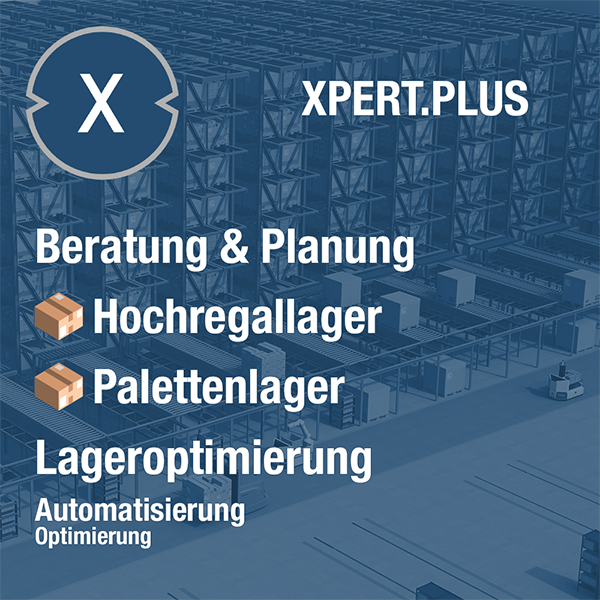
Xpert.Plus warehouse optimization - high-bay warehouses such as pallet warehouses consulting and planning
We are there for you - advice - planning - implementation - project management
☑️ SME support in strategy, consulting, planning and implementation
☑️ Creation or realignment of the digital strategy and digitalization
☑️ Expansion and optimization of international sales processes
☑️ Global & Digital B2B trading platforms
☑️ Pioneer Business Development
I would be happy to serve as your personal advisor.
You can contact me by filling out the contact form below or simply call me on +49 89 89 674 804 (Munich) .
I'm looking forward to our joint project.
Xpert.Digital - Konrad Wolfenstein
Xpert.Digital is a hub for industry with a focus on digitalization, mechanical engineering, logistics/intralogistics and photovoltaics.
With our 360° business development solution, we support well-known companies from new business to after sales.
Market intelligence, smarketing, marketing automation, content development, PR, mail campaigns, personalized social media and lead nurturing are part of our digital tools.
You can find out more at: www.xpert.digital - www.xpert.solar - www.xpert.plus



